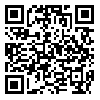Volume 9, Issue 7 (Supplement: Community Health. 2019)
J Research Health 2019, 9(7): 544-553 |
Back to browse issues page
Download citation:
BibTeX | RIS | EndNote | Medlars | ProCite | Reference Manager | RefWorks
Send citation to:



BibTeX | RIS | EndNote | Medlars | ProCite | Reference Manager | RefWorks
Send citation to:
Sivandian M, Besharat M A. The Association between Attachment Styles and Marital Adjustment: The Moderating Role of Defense Mechanisms. J Research Health 2019; 9 (7) :544-553
URL: http://jrh.gmu.ac.ir/article-1-1616-en.html
URL: http://jrh.gmu.ac.ir/article-1-1616-en.html
1- Department of Psychology , School of Clinical Psychology, Farabi College of University of Tehran, Qom, Iran.
2- Department of Psychology, University of Tehran, Tehran, Iran. , besharat@ut.ac.ir
2- Department of Psychology, University of Tehran, Tehran, Iran. , besharat@ut.ac.ir
Abstract: (1538 Views)
Background: Researches on attachment theory shows that attachment styles influence marital adjustment. However, some psychological factors moderate this correlation. The present study was aimed to examine the moderating role of defense mechanisms in the association between attachment styles and levels of marital adjustment.
Methods: This descriptive-correlational study collected data from a convenience sample of 300 married individuals (150 men, 150 women) using the Adult Attachment Inventory (AAI), Golombok Rust Inventory of Marital State (GRIMS) and Defense Styles Questionnaire (DSQ).
Results: The results showed that the secure attachment style and mature defense mechanisms were significantly correlated with marital adjustment. Avoidant and ambivalent attachment styles and immature defense mechanisms were negatively correlated with marital adjustment. The neurotic defense mechanism was not significantly correlated with marital adjustment. The results showed that mature and immature defense mechanisms acts as a moderator in the association between secure attachment style and marital adjustment. Besides, mature defense mechanisms moderated the association between avoidant attachment style and marital adjustment. Furthermore, immature defense mechanisms had moderated the association between ambivalent attachment style and marital adjustment (p<0.001).
Conclusion: Therefore, based on the results, the attachment styles and defense mechanisms would predict marital adjustment.
Methods: This descriptive-correlational study collected data from a convenience sample of 300 married individuals (150 men, 150 women) using the Adult Attachment Inventory (AAI), Golombok Rust Inventory of Marital State (GRIMS) and Defense Styles Questionnaire (DSQ).
Results: The results showed that the secure attachment style and mature defense mechanisms were significantly correlated with marital adjustment. Avoidant and ambivalent attachment styles and immature defense mechanisms were negatively correlated with marital adjustment. The neurotic defense mechanism was not significantly correlated with marital adjustment. The results showed that mature and immature defense mechanisms acts as a moderator in the association between secure attachment style and marital adjustment. Besides, mature defense mechanisms moderated the association between avoidant attachment style and marital adjustment. Furthermore, immature defense mechanisms had moderated the association between ambivalent attachment style and marital adjustment (p<0.001).
Conclusion: Therefore, based on the results, the attachment styles and defense mechanisms would predict marital adjustment.
Type of Study: Orginal Article |
Subject:
● Psychosocial Health
Received: 2018/05/23 | Accepted: 2018/09/29 | Published: 2020/07/18
Received: 2018/05/23 | Accepted: 2018/09/29 | Published: 2020/07/18
| Rights and permissions | |
 |
This work is licensed under a Creative Commons Attribution-NonCommercial 4.0 International License. |








